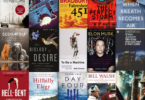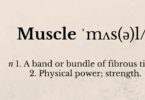Being successful and good at things means working like a crazy man, right? Everybody says so. Will Smith can’t wait to tell you how he’s working while other people are asleep, and how he’d kill himself to beat you on a treadmill race. Eric The Hip-Hop Preacher wants you to want success as badly as you’d want to breath if he dunked you in the sea, which would presumably be a lot. So you should probably be working every hour of the day, right?
Well, maybe not.
People love to cite the so-called 10,000 hour rule popularised by Malcolm Gladwell (basically: it takes that much practice to get world-class at anything) but at least one study of elite-level performers says there’s more to it than just cranking out the hours. For starters, your practice needs to be deliberate – targeted at improving something specific, in the sweet spot outside your comfort zone but before you panic. That kind of practice is difficult and boring, and tough to do for more than a couple of hours a day.
More importantly, though, a 1990 Berlin study found a couple of interesting differences between elite musicians and average ones – differences that suggest how you work might be more important than how hard. The elite and average musicians did the same amount of hours – but the elites split their practice into two well-defined daily practice sessions, while the average guys spread the work out throughout the day. The average guys also slept, overall, for an hour less a night than the elites.
What does that mean? It means that by splitting up your work throughout the day, doing it all day, and cutting your sleep short, you might actually be ruining yourself. Add to that the fact that Anders Ericsson, author of the study the whole 10,000 hours thing is based on, says, ‘To maximize gains from long-term practice, individuals must avoid exhaustion and must limit practice to an amount from which they can completely recover on a daily or weekly basis.’ Tony Schwartz, founder of The Energy Project, has made a career from making businesses more productive by instituting more breaks. And I’m pretty sure even Will Smith relaxes enough to keep himself productive.
Work when it’s time to work, rest when it’s time to rest – otherwise you’re half-working all the time and you aren’t hitting your full potential. Don’t kid yourself that half-working long into the night means you’re getting more done: work as hard as you possibly can, then totally relax, and go to bed early. How? Here are some ideas I use:
- Go to lunch. Work out if you can, but go for a walk if you can’t- either will cut your cortisol levels and refresh you for the afternoon. Working through is madness.
- At the end of the work day, write what you need to do first tomorrow on a post-it, then leave work and don’t think about it until you come back in. Don’t make the habit of staying late: work often expands to fill the time you give yourself.
- The Pomodoro timer is a nice name for the idiotically simple idea of working for 25 minutes, then having five minutes off. It’s the perfect amount of time – not quite half an hour, so you really concentrate your efforts, and it’s just long enough to keep yourself off Twitter for. Usually, after five minutes off, I can’t wait to get back to work, for an hour of furious work instead of six non-productive ones. This is how I write in the evenings.
- Improving reading is important, but it’s not great at the end of the day – it can be hard to take in, or leave you buzzing with ideas. I save ‘improving’ books (stuff about talent, brain-science, weightlifting and social skills) for my commute, and fiction before bed.
- Sleep like a bastard. Ideally you’re supposed to switch electronics off an hour before bed, but I’m apparently incapable of doing that. I try to make up for it by making my bedroom super-dark – no phones – and taking magnesium.
If you’re working hard, you need to rest hard. You can’t do one without the other.
HOMEWORK: Every night this week, ask yourself: am I working or resting right now? And whichever one it is, make sure you’re committed to that one.








Nice work, my friend. As someone who pushed it far too hard, and had to take several extended periods away from training as a result of overtraining, I whole-heartedly agree. I’m also a stickler for taking lunch breaks and leaving work on time.
Two quotes occur to me here:
1 – “Work + Rest = Training” Gym Jones
2 – “Do not confuse motion and progress. A rocking horse keeps moving but does not make any progress” – Alfred A Montapert.